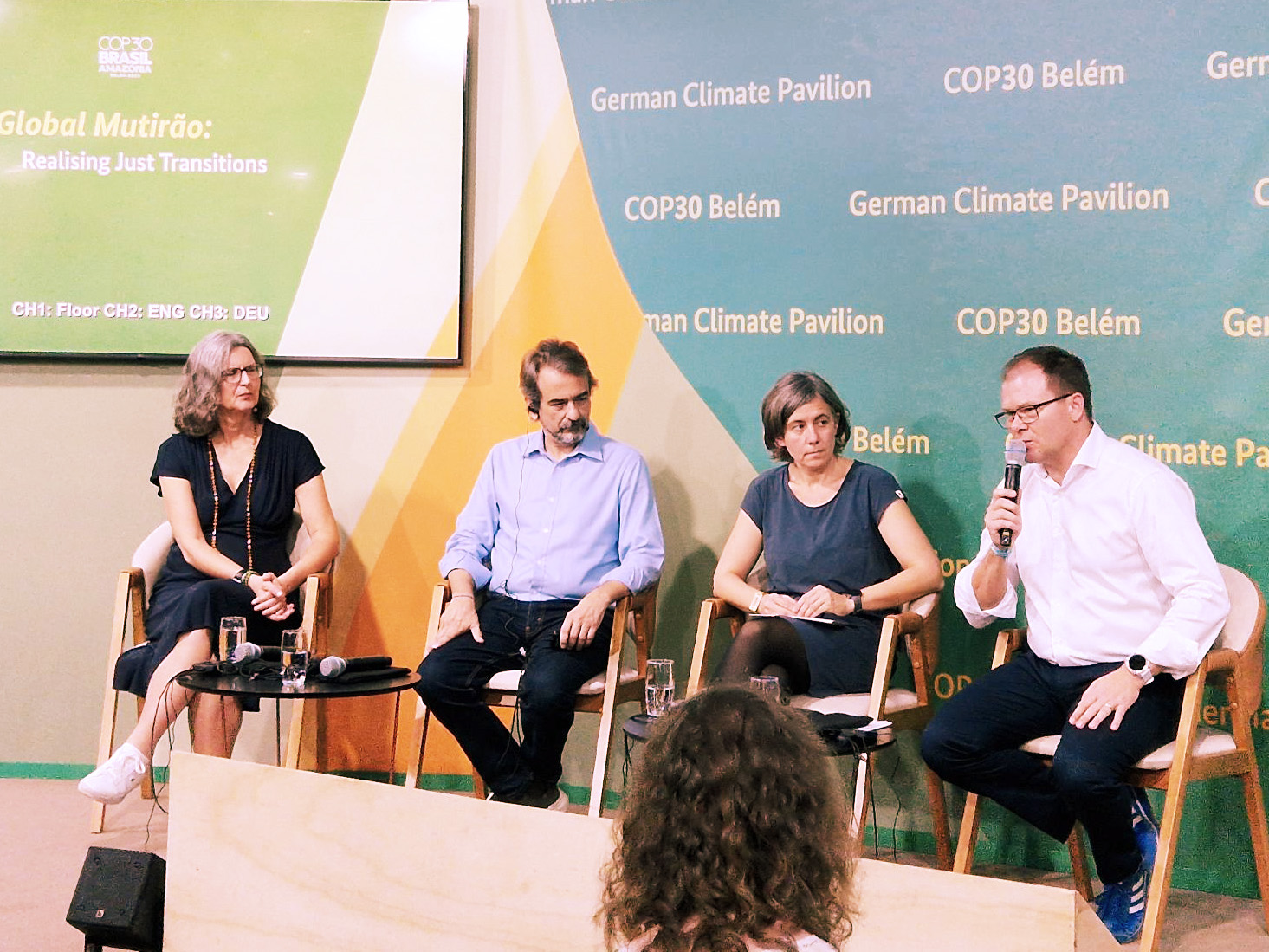A speaker at numerous high level events, she successfully pushed for a “Peatland Breakthrough” partnering with national and international government officials and NGOs. At the official side event on 17 November, Germany, following Peru und Uganda, committed itself to be a Champion Country, investing in peatlands to achieve effective conservation-based climate protection. By setting this example, others are encouraged to follow suit and endorse peatland protection in national climate action plans.
The Peatland Breakthrough is a collaborative effort to accelerate and mobilise action to conserve, rewet and restore, and enable the sustainable, wise use of the world’s peatlands in ways that maintain their essential functions. This in turn contributes to achieving climate goals, and improving water security, biodiversity, and people’s livelihoods.
“Bringing peatlands to COP30 in Belém could not be more timely,” says Franziska Tanneberger. “With the Global Peatlands Assessment and the Global Peatland Hotspot launched at previous climate COPs, the science is crystal clear. And now we are in Brazil — the tropical country with the largest peatland area. It’s especially rewarding to see how research and policy work from a remote German federal state can make a change on the international stage.”
As a member of the Federal Government’s “Scientific Advisory Board for Nature-based Climate Action (WBNK)” peatland expert Tanneberger led an exchange on “Perspectives from Key Peatland Countries” at an event being held on “Nature-based Climate Action as a Key Instrument for achieving Germany's Climate Target” (COP30 Belem | German Climate Pavilion) on 20 November in the German pavilion.
In order to join forces for peatland science on a global scale, the Greifswald Mire Centre signed a Memorandum of Understanding with the International Tropical Peatland Centre on 21 November in the Indonesian Pavilion.
Peatland expertise from Greifswald was also featured in several other events, e.g. “Security from the Ground Up: Soils and the Foundations of Resilience” in the Ukraine Pavilion, “Mainstreaming nature based solutions for climate resilience in East African countries” in the East African Countries Pavilion, and “Integrating Peatland Restoration and FOLU within the Global Carbon Market Framework” in the Indonesian Pavilion.
Peatlands and climate protection
Peatlands are unique and rare ecosystems that, despite only covering around 3-4% of the planet’s land surface, contain up to one-third of the organic carbon found in the world’s soil - twice the amount of carbon found in the world’s forest biomass. But when drained or degraded, peatlands shift from carbon sinks into carbon emitters. Currently, drained and degraded peatlands contribute to 4-5% of annual global human-induced emissions, equivalent to the combined emissions of the aviation and shipping industry. Keeping this carbon locked away is absolutely critical in halting climate change. Moreover, functioning peatlands are essential for water security, biodiversity, and people’s livelihoods.
17.11.2025 NDR Info – short live broadcast with Franziska Tanneberger [in German]
Know-how zu Moor- und Klimaschutz aus Deutschland auf der COP30 in Brasilien (from sec. 12:04)
Contact at the University of Greifswald
Dr. Franziska Tanneberger
Soldmannstraße 15, 17489 Greifswald
Tel.: +49 3834 240 4137
tanneuni-greifswaldde

